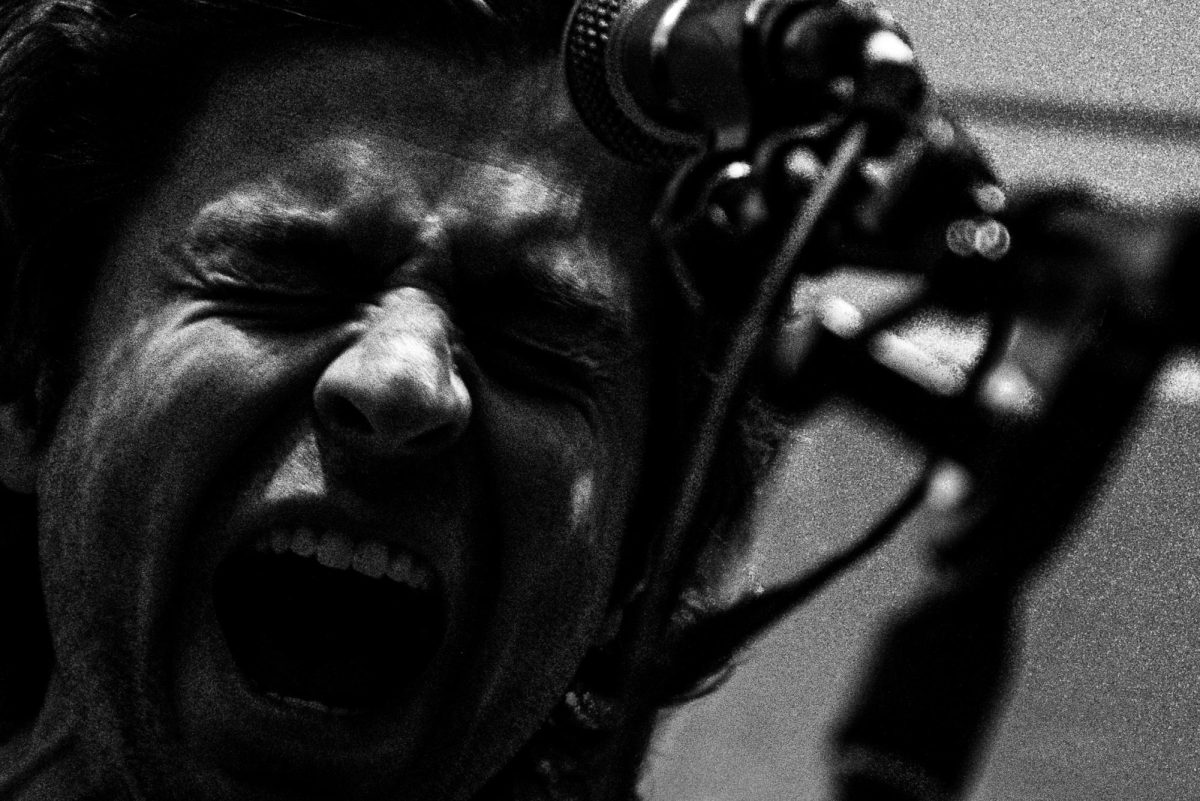“Christian” Music isn’t Always Heavy-handedÛ_or Awful
November 10, 2015
Courtesy of Wow Moscow
Spotify’s Discover Weekly playlists have given me some very interesting things. Ranging from new discoveries that I’ll probably treasure forever, to the same bands I’ve repeatedly tried and failed to get into. The service at least knows what I SHOULD like. But, this summer, when I was back home in Pennsylvania, I had a very interesting experience that resulted in me having a new band to listen to. But let’s just say I’m glad I actually listened to them first.
First of all: I have a giant soft spot for Celtic punk. I have a Dropkick Murphys flag hanging in my dorm room and own their entire discography on vinyl. I’m a sucker for Flogging Molly and the Real McKenzies (even though the latter are Canadian…). And who doesn’t love The Tossers? I obviously ended up with some Celtic punk on my Discover Weekly playlist, and one of them was Flatfoot 56’s “Winter in Chicago” from their most recent album, Toil.
While not overly Celtic (I don’t think any bagpipes appear on the track at all), I was enticed enough by this one track to give the rest of the album a listen. And I really liked it. It was the same style I had expected from the first track of theirs I heard, and the lyrics were generally very uplifting—even more so than they usually are in this genre.
So, because I literally had never heard of this band before, I head to their Wikipedia page where I find out that not only are they considered a “Christian Punk” band, but that their 2007 album Jungle of the Midwest Sea was actually nominated for Best Rock Album at the 2008 Gospel Music Association Dove Awards. I was honestly confused. I didn’t really get that uber-Christian vibe I had gotten from my previous experiences with Christian rock/punk bands. Like I said previously, the lyrics on Toil were just very uplifting and expressed positivity, but not in the heavy-handed way that, even as someone who is relatively religious, gets very old very fast. And there were definitely no explicit mentions to God or Jesus. Although, the fact the last track was a cover of a hymn should’ve given me some clue. But, hey, the Dropkick Murphys covered “Amazing Grace,” so…
Anyway, upon a repeated listen, I can definitely see how Flatfoot 56 can be considered a Christian band, albeit a pretty progressive one. It’s probably most apparent in the album opener, “Brother Brother:Û
You say you’re free and you do what you want, push love aside as you follow the pun.
Your addictions ruling you, peace not the choice you even choose.
You cast the blame on the world outside, yet you’re the one who chose to hide.
You’re always free to take my hand.
Before you run you gotta learn to stand. Instead you run away, instead you run away.
Brother, brother, can’t you see?
The path that you’ve chosen will lead you to misery.
Brother, brother, emergency.
The road that you’re bound on will lead you to misery.
So with 20/20 hindsight, it’s kind of apparent. And to be fair, this is one of the more egregious examples on the record. The title track “Toil” is both a celebration of the working class and a progressive criticism of cronyism (which tend to go hand-in-hand):
With a silver spoon breaking my teeth, the boys on the line working just to eat.
Are you picturing the stories that I sing?
A child working day and night, a father turned into a ghostly sight,
The wage slave knows so well that hopeless strain
Of a poor man just trying to remain
As he pays his toll of pain.
From the dear old age of Adam to the workers of Boaz,
We’ve been doomed to sing this crazy song, yet it’s made me who I am.
From the steel workers in Pittsburgh, to the trucker and his load,
All feeding that old fat cat just hoping he’ll explode.
So nothing overtly, shoved-in-your-face Christian; more the “treat everyone as equals” kind of message that, arguably, most decent human beings, regardless of their religious affiliation, or lack thereof, would agree upon. Which is why this isn’t obviously Christian music. It was clearly made with that in mind, but this brings up an interesting question. What makes music inherently religious or not religious? I mean there are the obvious examples of religious music (hymns, Gospel music, etc) as well as the opposite, but it is in this middle ground that interesting discussion can be had. If music espouses religious themes like “love your neighbor as yourself,” does that make the music religious, even if not intended to be? And this all goes back to why music and art need specific labels to begin with. You sound pretentious correcting people who get a genre wrong. I used to be that guy and I hate myself for that.














